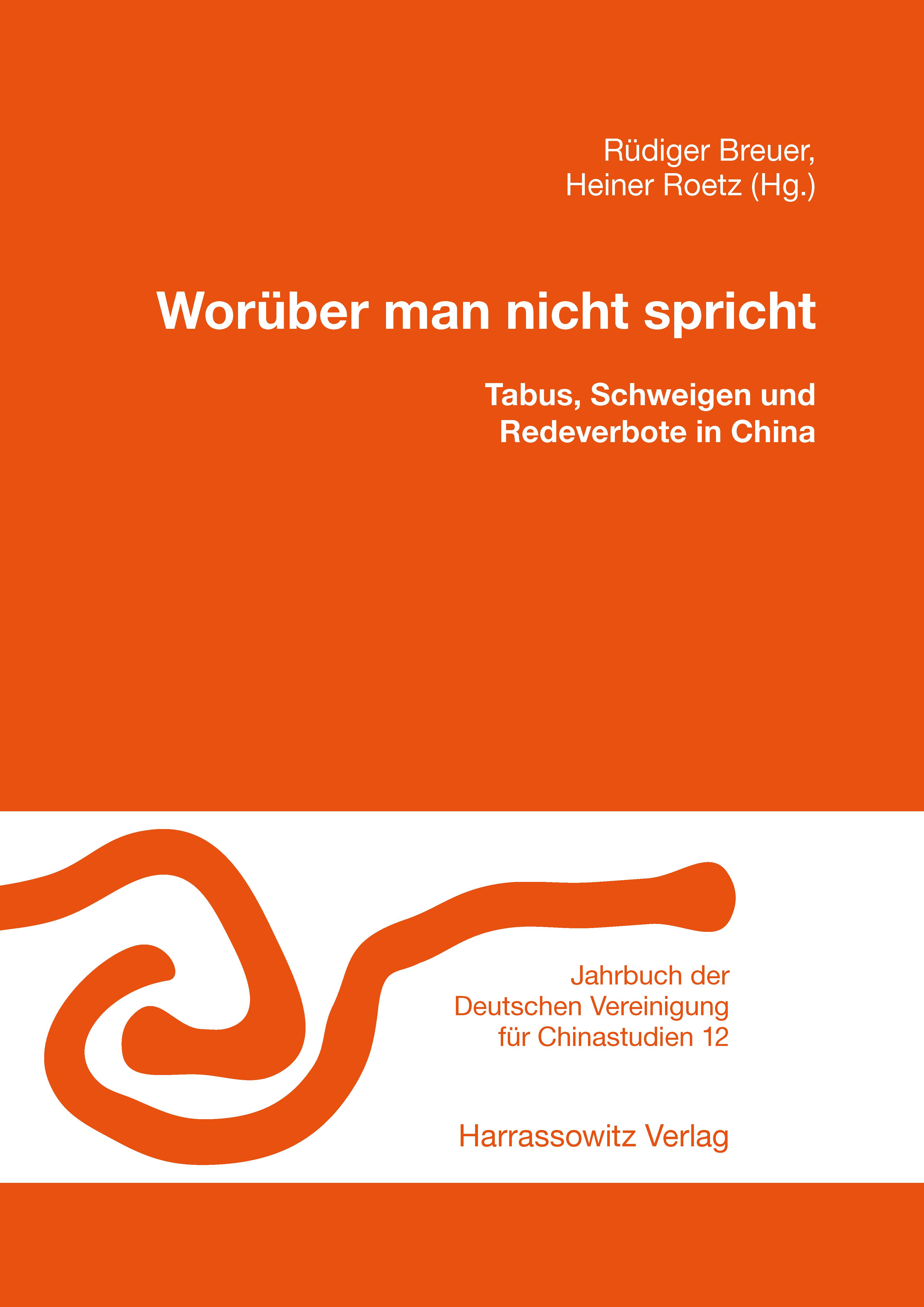Becker, Tania
Worüber man nicht spricht: Tabus, Schweigen und Redeverbote in China
Self-imposed or socially or state-imposed speech taboos have always accompanied Chinese cultural history, as have attempts to break or circumvent them. Not only philosophy, historiography and literature have stood in this field of tension, but also moral and political action, which is still confronted with speech taboos today.
Worüber man nicht spricht gathers eleven contributions that span an arc from Chinese antiquity to the present day and illuminate the topic from various perspectives. They are examined: Cases of incest in ancient China; the problem of domestic violence in contemporary China; the originally strictly confidential "family teachings of Zhu Xi"; guidebook literature on China with its recommendations and prohibitions; the criticism of the republican writer and intellectual Lu Xun of mechanisms of power; the orientation of research on the 'Book of Changes' (Yijing); political factionalism in the one-party state of China; the linguist Wei Jian¬gong and his justifications of language policy measures; the political commitment of the filmmaker Shi Hui in the 1940s and the activities of the performance artist He Yunchang in the political and social context of the People's Republic of China. In this way, a multifaceted picture of taboos and prohibitions of speech in China's past and present is created.
Erinnern und Erinnerung, Gedächtnis und Gedenken: Über den Umgang mit Vergangenem in der chinesischen Kultur
Keeping parts of the past in the collective consciousness and bringing them to mind also directly shapes the subjective perception of the individual. Shared memories are an important basis of identity and community building. Forms of reproducing and reproducibility of memory, which include recording the past as well as preserving present knowledge, depend on culture and history. Thus, every culture of remembering and commemorating – as well as of forgetting – includes social conflicts, series of events, crises and blows of fate as well as positively charged moments and serendipities. In order to show the importance of commemorative culture for China's past and present development, the volume edited by Maria Khayutina and Sebastian Eicher looks at Chinese commemorative culture from historical, philological, literary and cultural studies perspectives, covering a long period from the early Middle Ages to the present. The case studies by nine authors are dedicated to such diverse sources as early medieval geographical works, dynastic histories, Song dynasty poems, Ming novels as well as dictionaries, UNESCO intangible cultural heritage and contemporary films, all the way to current developments in the field of artificial intelligence.
For technical reasons there may be minimal differences between this digital version and the print version from Harrassowitz.









